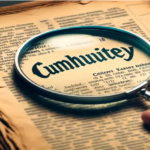Introduction to the Alicia Case Atlanta
The Alicia Case Atlanta has captured the attention of many, stirring discussions and debates across various platforms. As details emerged, it became clear that this case was more than just a legal battle; it was a pivotal moment in our understanding of justice and accountability. With numerous twists and turns, the implications extend far beyond the courtroom. From community reactions to potential changes in legislation, every aspect is worth exploring. Let’s dive into what makes this case so significant and why it matters for all of us.
Background of the Case and Key Players Involved
The Alicia Atlanta case emerged as a pivotal moment in the legal landscape. It centers around allegations that sent shockwaves through the community and challenged public perceptions of justice.
Alicia, the central figure, became an emblem of resilience amidst adversity. Her story captivated many and painted a vivid picture of the struggle against systemic issues. The key players involved included local law enforcement, activists advocating for change, and attorneys on both sides who shaped the narrative.
Each participant brought their own motivations to the table. Law enforcement aimed to uphold justice while grappling with public scrutiny. Activists rallied behind Alicia, amplifying her voice and demanding accountability within the legal system.
As events unraveled, it became clear that this case was more than just about one individual; it represented broader societal concerns that echoed far beyond Atlanta’s borders.
Events and Timeline Leading to the Outcome
The Alicia Case Atlanta unfolded over several pivotal events that captured public attention. It began with a shocking incident that raised questions about safety and justice.
Initially, the community was shaken by the details of what transpired. News spread quickly, igniting protests and calls for accountability. Social media played a crucial role in amplifying voices demanding change.
As investigations progressed, key players emerged. Law enforcement agencies faced scrutiny regarding their handling of the situation. Activists rallied to support Alicia and her family, highlighting systemic issues within the legal framework.
A series of hearings followed, drawing significant media coverage. Each session revealed new information that kept citizens engaged. The timeline culminated in a landmark ruling that would set precedents for future cases involving similar issues.
This sequence of events left an indelible mark on local communities and broader societal discussions around justice reform.
Impact on the Legal System and Society
The Alicia Case Atlanta has significantly impacted the legal system and society. It sparked conversations around justice, accountability, and individuals’ rights in high-profile cases.
Legal professionals are now scrutinizing procedures that govern evidence collection and presentation. The outcome highlighted potential flaws within existing laws, prompting debates about necessary reforms.
On a societal level, public perception of the judicial process is shifting. Many people feel empowered to question outcomes that seem unjust or biased. This collective awareness may lead to increased activism for change.
Moreover, communities are demanding transparency from law enforcement agencies. As trust erodes in some areas, there’s an urgent call for systemic changes to restore faith in the legal framework.
This case emphasizes how intertwined our legal systems are with societal values and expectations; all eyes will be on future developments as they unfold.
Lessons Learned from the Case
The Alicia Case Atlanta has highlighted several critical lessons for the legal community and society. One significant takeaway is the importance of transparency in judicial proceedings. Public trust hinges on knowing that justice is served and seen to be served.
Another lesson revolves around the need for comprehensive training among law enforcement officials. Understanding cultural sensitivities can drastically improve interactions with diverse communities, reducing tensions before they escalate.
Moreover, this case underscores the vital role of advocacy groups in raising awareness about systemic issues within our legal frameworks. They serve as a voice for marginalized individuals who may otherwise remain unheard.
It emphasizes the necessity of open dialogue between citizens and lawmakers. Engaging in constructive conversations fosters understanding and paves the way for meaningful reforms that address societal concerns head-on.
Possible Reforms and Changes in Response
The Alicia case in Atlanta has sparked serious discussions about necessary reforms. Stakeholders call for clearer guidelines for handling sensitive cases, especially those involving minors.
One potential change is enhancing training for law enforcement and social workers. Knowledgeable personnel can better navigate complex situations, leading to more informed decisions.
Moreover, advocates suggest revising policies on evidence collection and storage. An improved system could prevent the mishandling of crucial information that may influence a case’s outcome.
Community engagement also plays a vital role. Establishing forums where citizens can voice concerns encourages transparency and trust between the public and legal institutions.
Legislative bodies might consider stricter oversight mechanisms. Ensuring accountability within the justice system will promote fairer outcomes without compromising individual rights or safety.
Conclusion
The Alicia Atlanta case has ignited discussions across various platforms, shedding light on critical issues within our legal system and society. The implications of this case extend far beyond its immediate outcome. It raises essential questions about justice, accountability, and the role of public opinion in shaping legal processes.
As we reflect on the events surrounding this case, it becomes evident that many lessons need to be learned. From understanding the importance of due process to recognizing systemic biases, areas are ripe for reform. Stakeholders at all levels must engage in thoughtful dialogue to address these complexities.
Many advocates call for changes that ensure transparency and fairness in future cases similar to Alicia’s. By fostering a more equitable legal environment, we can hope to prevent such situations from occurring again.
The story of Alicia Atlanta serves as a powerful reminder of our collective responsibility towards justice and societal progress. As conversations continue around this pivotal event, it’s crucial that we remain vigilant and proactive in seeking meaningful change for those affected by similar circumstances.




















